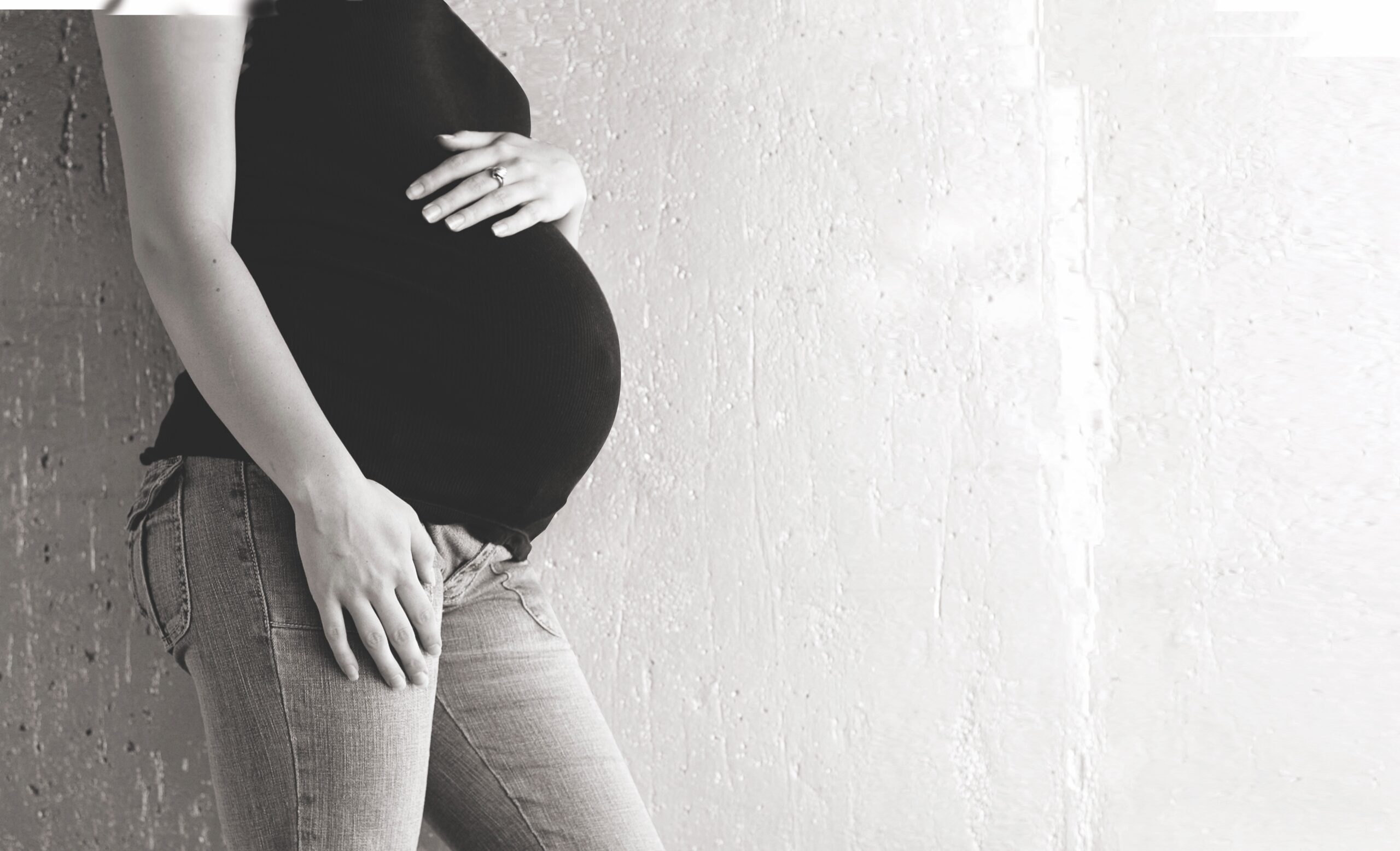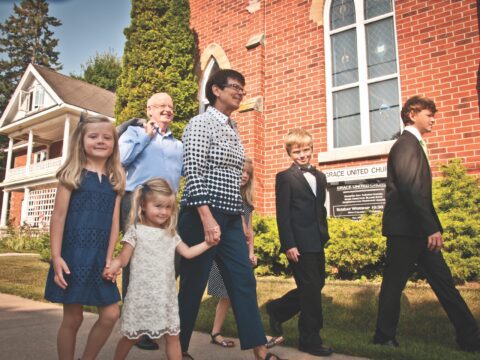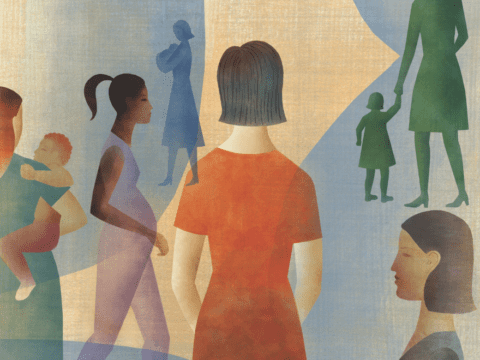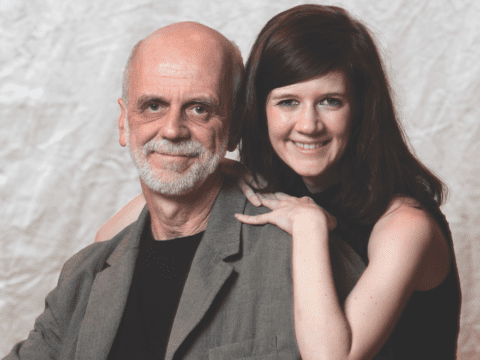Little is known about the handmaids of the Bible, characters like Hagar, Bilhah and Zilpah. We do know that in biblical times the duties of a handmaid might have included bearing a child for the master of a household so he would have an heir if his wife could not bear him one. It was never presented as much of a choice to the handmaid.
The truth is that women around the world still bear children for people of privilege. Only today it’s called adoption, and it’s still never presented as much of a choice. Growing numbers of mothers who surrendered their babies at a vulnerable time in their lives are beginning to speak out about the injustice in past and current adoption practices.
I am one of them. I became pregnant in 1975 at the age of 16. I was unmarried and had limited means of support. From the start, it was assumed that I would give up my baby for adoption. But it wasn’t an assumption I shared. While I was pregnant, the thought of losing my baby was more than I could bear. Those feelings only grew after he was born. At the same time, it was made clear to me that I would never receive the support I would need to raise him. The system was stacked against unwed mothers.
I was told repeatedly about the mature woman who longed for a child and could give my baby what I couldn’t. And I was assured that giving up my son was an unselfish act of love. Time and again, I was told that I would get over my loss and move on.
Eventually, I surrendered. I was instructed to leave the hospital without seeing my son. I ignored the order on more than one occasion, and I treasure those stolen moments to this day.
I went home with empty arms and a broken heart. Consumed by unresolved grief, I returned to high school and pulled myself together enough to graduate. Not long after that, I joined the military and met the man who became my first husband.
Five years later, our first daughter was born. My joy at her arrival was overshadowed by nightmares and an intense fear of losing her. The birth of my subsequent children retriggered those fears. As my children grew, each milestone was bittersweet, a reminder of what I had missed with my first-born. I scrutinized every boy who looked his age — could this be my child? The burden of not knowing where he was and if he was okay weighed heavily on me.
The secrecy of the adoption process meant I kept the burden mostly to myself. When I did confide in a few people, I spoke of “the baby I surrendered,” believing that I didn’t deserve to call him “my son.” The label society gave to me reinforced this idea; I was his “birthmother,” the vessel who brought him into the world to be raised by someone worthier. I was a handmaid.
Several years ago, when he was 26, my son and I were reunited through Alberta’s post-adoption registry. He’s a wonderful person; we’re in regular contact now and visit when we can. He lives a busy urban life with his spouse and two dogs. When we met, it was amazing to see how much he looked like me and his father, with whom he was also reunited.
His laugh and many of his mannerisms are so like ours that he has felt familiar from the beginning. The unbearable worry is gone, but deep sadness lingers about the years forever lost to us.
Soon after our reunion, I became involved with the Canadian Council of Natural Mothers. It was wonderful to connect with other mothers who have lost children to adoption, and to learn that it wasn’t unusual that I didn’t “get over it.” In fact, my nightmares and intense anxiety were a normal response to being separated from my baby and forced to carry on as if everything was all right.
I am now convinced that, like the biblical handmaids, my sexuality and fertility were used by those in positions of power to determine the course of my life and my child’s. Just like the biblical handmaids, millions of other women who experience poverty, suffer illness and live amid conflict continue to be denied reproductive freedom. They continue to be victims of attitudes and laws that reward the privileged and punish the marginalized.
In Canada, adoption laws are the responsibility of the provinces or territories, and even though all are based on the principle of acting “in the best interests of the child,” they vary widely.
Generally, mothers who are considering adoption do not have recourse to independent legal advice. In some provinces, beginning with British Columbia in 1996, adoption records have become more open, allowing for faster exchange of information on matters such as genetic health problems. In places where adoption records are still closed and critical health issues arise, the hoops that must be jumped through are time-consuming and difficult.
From the early 1900s through to the 1980s, many maternity homes, including several run by the United Church, mistreated pregnant unwed women by taking their clothing, banning visitors, controlling their money and presenting a bill for room and board if a mother balked at signing surrender documents.
Social work textbooks sanctioned the forced surrender of babies as the price mothers paid for their immoral behaviour. I wonder how far we have really come from those days. The acclaimed 2007 movie Juno tells the story of a 16-year-old high school student in Minnesota who gets pregnant and decides to give up her baby. She’s sad for a while, but then gets over it. That’s what society wants to hear. It’s not what most mothers experience.
In Australia, there has been significant progress in gaining public recognition of the damage done by unjust adoption practices. This past February, a parliamentary inquiry called on the Australian government to offer an apology and compensation to thousands of unwed mothers who had been coerced into giving up their babies for adoption in the decades following the Second World War.
The issue is just showing up on the radar in Canada. The United Church has begun a review of archival information relating to its former maternity homes. But there’s still a long way to go. Technology has allowed mothers like me to break out of our historical isolation. We are claiming our voices in the process. It’s as basic as language. “Birthmother” is someone else’s term, not ours. We are mothers, nothing more and nothing less.
On a broader front, laws must change so that adoption becomes the solution of last resort in cases where it is demonstrated that the well-being of the child is not at risk. During pregnancy, birth and the postpartum period, prospective adopters must not be allowed near the mother or her child. The mother and her baby should have a minimum of 90 days together before an adoption plan is considered and a consent form is signed.
Mothers must be fully informed about their legal options, the social services available to them and the long-term physical and psychological consequences of surrendering their baby. Legal guardianship that allows the mother an ongoing connection to her child should always be considered before adoption.
In the meantime, with or without the assistance of government, I and growing numbers of mothers like me will continue to search for and find our adult sons and daughters. May the day soon come when there will be no more handmaids.
***
This story first appeared in The United Church Observer’s May 2012 issue with the title “Handmaids no more.”














